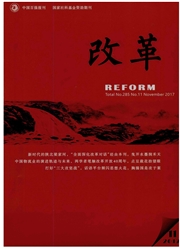

 中文摘要:
中文摘要:
利用规模以上工业企业数据探讨了煤炭资源税的改革效应的微观影响和地区差异。结果表明:煤电行业存在明显的规模报酬递增效应,改革的成本效应使得小型煤电企业更容易被淘汰出局:相比集体企业和私有产权企业,改革所带来的成本效应对国有煤炭企业影响更明显;当煤炭资源税全面铺开之时,生产率落后的地区将会受到更大的影响,改革的紧缩效应更加明显。另以榆林市作为重点分析案例,分析结果发现.榆林市虽然拥有资源禀赋优势,但煤电行业的全要素生产率较低,大部分企业承压能力较弱,生产技术落后是制约其全要素生产率提高的关键。
 英文摘要:
英文摘要:
We diseuss the micro influence and regional difference of coal resource tax reform by using the data of industrial enterprises above designed size. The resuh shows that coal and electricity industry has obvious increasing scale effect, and the cost effect of reform makes low-scale companies are more likely to be kicked out. Compared to collective and private enterprises, the influence that the cost effect of reform has on state-holding coal enterprises is more obvious. When the reform spreads out, influences on provinces with lower TFP are expected to be more severe, and the contraction effect brought by the reform will be more apparent. We take the Yulin, a world-famous city for its coal resources, as a typical example for further analysis and the conclusion is that coal and electricity companies in Yulin have a lower TFP and weaker capacity for extra burden despite the city has abundant coal resources, and the backward technology is the key to restricting its productivity.
 同期刊论文项目
同期刊论文项目
 同项目期刊论文
同项目期刊论文
 期刊信息
期刊信息
